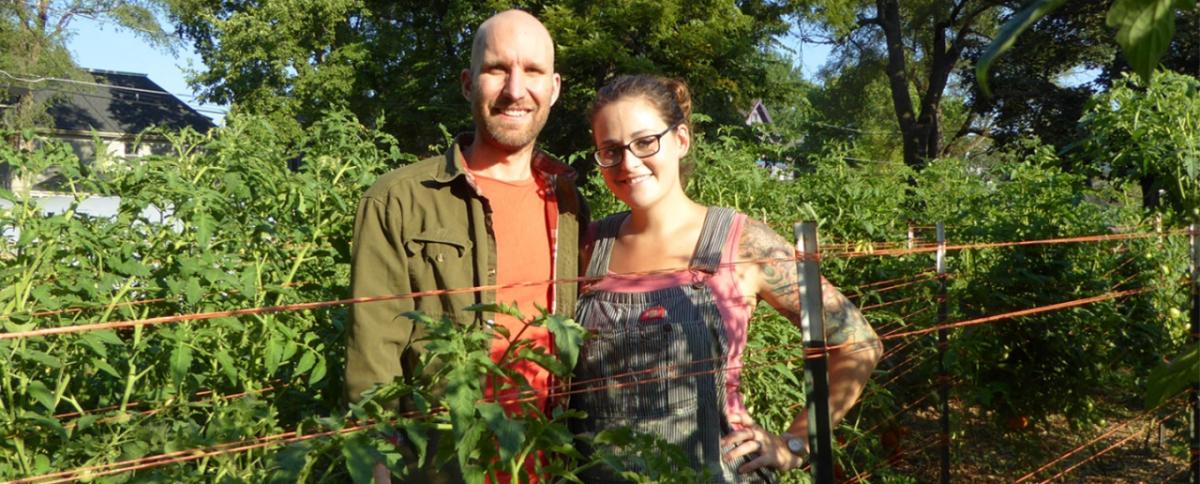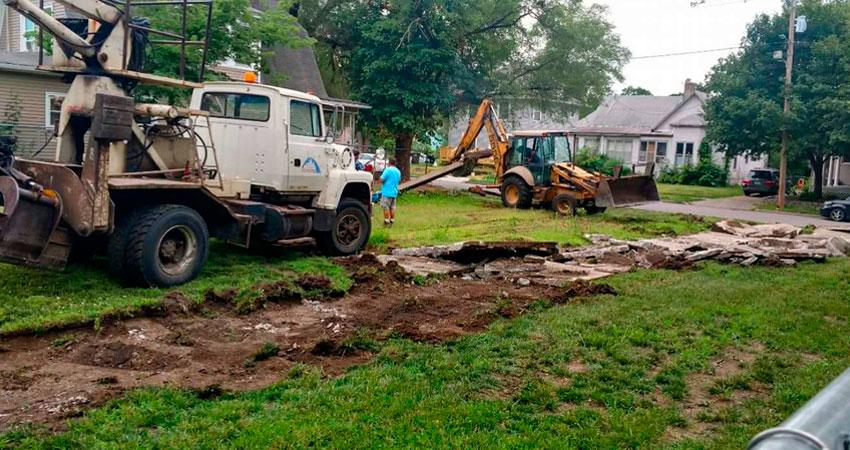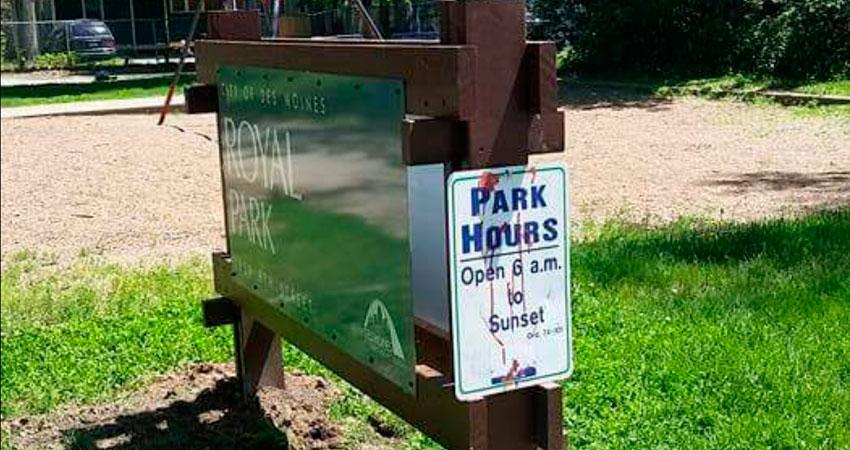After Date Nights in the Garden, a Farm Emerges
It’s a wonder what a few veggies can do for a next-door lot full of weeds, drugs, and crime. Find out how Wells Fargo team member Rene Owczarski and his wife, Monika, got an urban farm approved for their Des Moines, Iowa, community.
After date nights in the garden, a farm emerges
“We get the kids to bed, go outside, and put on our head lamps to weed,” Monika Owczarski said. “Luckily, our baby monitor reaches that far.”
Rene Owczarski, a Wells Fargo team member, and Monika Owczarski, a former team member, have led the efforts to create an urban farm next to their house in Des Moines, Iowa. Sweet Tooth Farm is in its first full year of operations and growing watermelon, corn, tomatoes, peppers, eggplant, green beans, herbs, and lettuces in its 4,500-square-foot space. While Rene and Monika Owczarski sell the produce, they’re also donating it to people in the community and a local food bank.
“A lot of folks in the neighborhood don’t have cars or access to fresh produce,” Monika Owczarski said. “We wanted to have that for them. There’s something wonderful and healing about feeding people.”
A groundbreaking effort
It all started six years ago, when the Owczarskis moved to their home. There was a space between their house and their neighbor’s where a former home had stood. The land became a pocket park in the 1970s, with some playground equipment and a basketball court. Over time, however, the equipment was removed, and the area became a space where people would congregate late at night.
“It was 0.2 acres, so it didn’t make a great park,” said Ben Page, director of the City of Des Moines Parks and Recreation department. “It wasn’t uncommon to have police reports of non-family-friendly activities. I saw police reports with things from illegal drug activity to fighting.”
After residents in the neighborhood grew frustrated, Monika Owczarski reached out to the Parks and Recreation department. She learned it would take at least 10 years before there would be money to do anything with the mini park. After three years of emails and petitions, Rene and Monika Owczarski presented the Parks and Recreation staff with six options. One included a community garden, which the Parks and Recreation department and city council approved.
“We wanted to do something positive for our block and for our neighborhood, so we decided to create a space that could provide fresh produce to our neighborhood from our neighborhood,” Rene Owczarski said.
The city still owns the land, and Rene and Monika Owczarski are leasing it for three years. “Everybody I talked to kept saying, ‘It’s never been done,’” Rene Owczarski said. “It’s really groundbreaking.”
Page agreed. “We don’t give up park land very easily because we don’t usually get it back,” he said. “It’s important for cities to provide parks within walking distance, but this also offered the ability to meet an important and local need with food sourcing.”
‘In a perfect world, nothing will go to waste’
Rene and Monika Owczarski received unanimous approval from both the Parks and Recreation department and city council by June 2017. Since the couple wanted the community to get acclimated to the former pocket park no longer serving as a public space, and it was late to plant anything, they began their efforts by installing a fence on the front of the property. The Parks and Recreation department took out the sidewalk and sand, filling the space with dirt.
Donations from friends allowed Rene and Monika Owczarski to install the fence and a greenhouse. Rene Owczarski was able to get the wood and floors for the greenhouse from friends, as well. He also created a system for watering the urban farm. To learn best practices for such a large space, the couple looked at YouTube videos, read books from the library, browsed extension group websites, and reached out to Monika Owczarski’s aunt, a botanist.
“Today, you drive by, and they have a nice community garden, and you don’t have the same problems as before,” Page said. “We’ve done a 180. Monika and Rene work so hard, and their passion shines through. I wish we had more citizens like them. It’s a great story of how, when a city listens to a community, it can be a positive thing.”
In addition to the produce they are now growing, there are also some wildflowers, and Rene Owczarski has a bee colony from which he hopes to produce and sell honey. They hope to one day add some livestock. “Our goal this year is solely just to cover our expenses,” Monika Owczarski said. “Whatever we’re not able to sell will go to the Food Bank of Iowa. In a perfect world, nothing will go to waste.”
While the couple does most of the work, they have had a community youth group volunteer, too. “It’s been nice because we’ve met a lot more of our neighbors,” Rene Owczarski said. “It’s an easy entry for people to stop by and connect.”
Those who come by either will pick their own food or reach out to Rene and Monika Owczarski with their order. Monika Owczarski runs the Sweet Tooth Farm Facebook page, where she posts about what they have available. “We’re still figuring out what works best,” she said. “In a perfect world, we’d have a stand, but the focus is in this specific neighborhood. For people not too familiar, it’s good to come in and see it’s a beautiful place. It’s come a long way in the last 10 years.”




